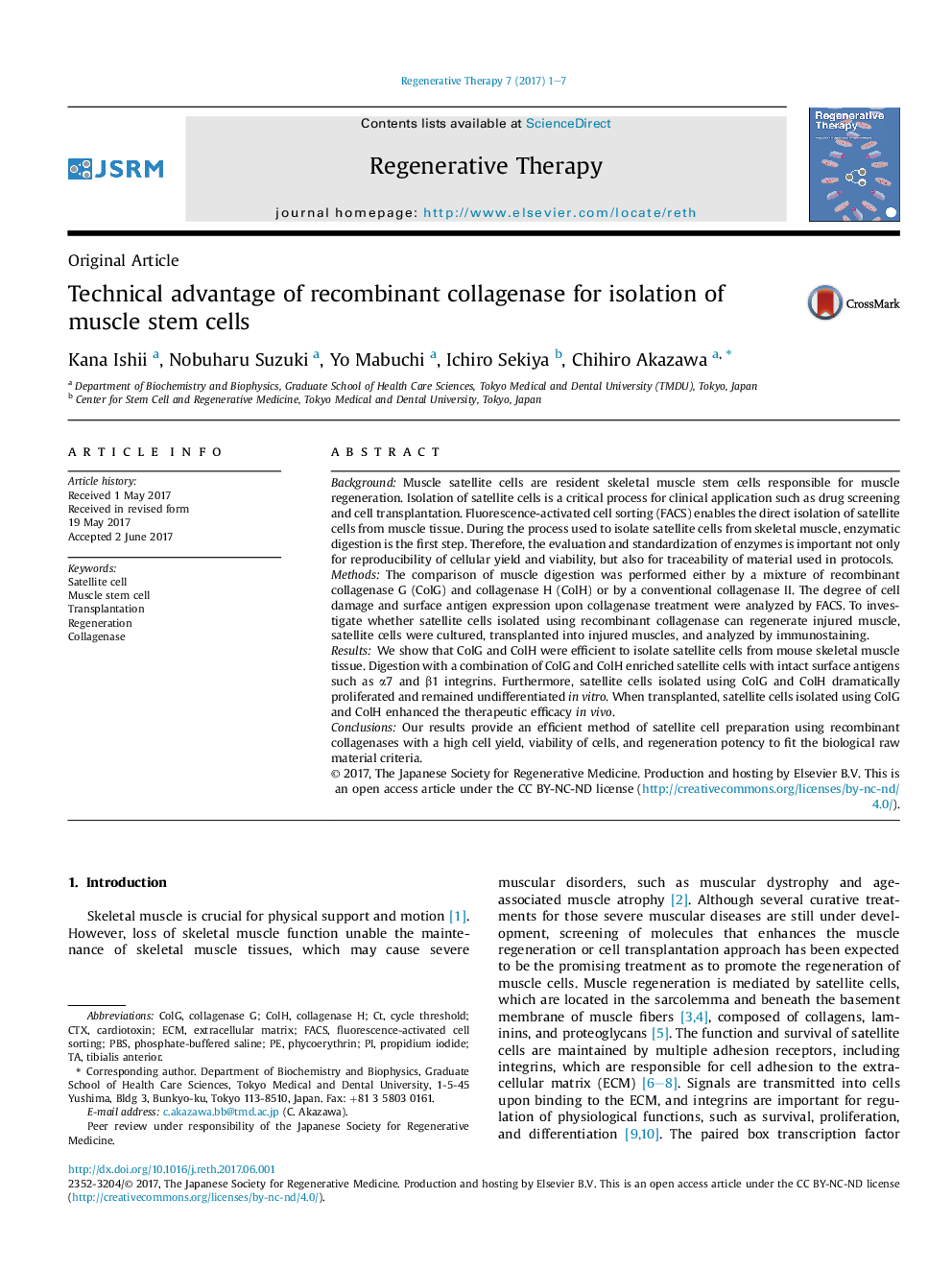| Article ID | Journal | Published Year | Pages | File Type |
|---|---|---|---|---|
| 5516181 | Regenerative Therapy | 2017 | 7 Pages |
â¢Recombinant collagenase causes less damage to muscle mononuclear cells.â¢Satellite cells isolated using recombinant collagenase retain cell surface antigens.â¢Isolated satellite cells using recombinant collagenase have an improved regenerative capacity.
BackgroundMuscle satellite cells are resident skeletal muscle stem cells responsible for muscle regeneration. Isolation of satellite cells is a critical process for clinical application such as drug screening and cell transplantation. Fluorescence-activated cell sorting (FACS) enables the direct isolation of satellite cells from muscle tissue. During the process used to isolate satellite cells from skeletal muscle, enzymatic digestion is the first step. Therefore, the evaluation and standardization of enzymes is important not only for reproducibility of cellular yield and viability, but also for traceability of material used in protocols.MethodsThe comparison of muscle digestion was performed either by a mixture of recombinant collagenase G (ColG) and collagenase H (ColH) or by a conventional collagenase II. The degree of cell damage and surface antigen expression upon collagenase treatment were analyzed by FACS. To investigate whether satellite cells isolated using recombinant collagenase can regenerate injured muscle, satellite cells were cultured, transplanted into injured muscles, and analyzed by immunostaining.ResultsWe show that ColG and ColH were efficient to isolate satellite cells from mouse skeletal muscle tissue. Digestion with a combination of ColG and ColH enriched satellite cells with intact surface antigens such as α7 and β1 integrins. Furthermore, satellite cells isolated using ColG and ColH dramatically proliferated and remained undifferentiated in vitro. When transplanted, satellite cells isolated using ColG and ColH enhanced the therapeutic efficacy in vivo.ConclusionsOur results provide an efficient method of satellite cell preparation using recombinant collagenases with a high cell yield, viability of cells, and regeneration potency to fit the biological raw material criteria.
